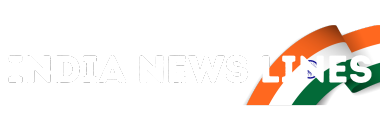Is India’s interest in the Shanghai Cooperation Organization (SCO) fading? This question arises as Prime Minister Narendra Modi has skipped the 2024 SCO Summit meet in Astana, Kazakhstan. Let’s delve into this further as Mint examines the dynamics of India’s involvement in this important regional grouping.
Understanding the SCO: Origins and Purpose
The SCO was established in 2001, evolving from the Shanghai Five, which initially consisted of Russia, Kazakhstan, Kyrgyzstan, Tajikistan, and China. The organization originated as a means to address concerns related to religious extremism and ethnic tensions in the region following the dissolution of the Soviet Union. Over time, the SCO expanded its scope to encompass trade, connectivity, tourism, and more, with the inclusion of Uzbekistan in 2001.
India’s Entry into the SCO
India’s joining the SCO in 2017, along with Pakistan, was driven by its vision of a multipolar world. The SCO offered India opportunities to engage with Central Asia, an important region rich in natural resources. Despite historical tensions with Pakistan hindering past efforts towards regional connectivity, India viewed the SCO membership as a strategic avenue for engagement with Eurasia and a platform to address shared security concerns.
SCO Membership: Current Status
India, Iran, Kazakhstan, China, Kyrgyzstan, Russia, Pakistan, Tajikistan, and Uzbekistan are full members of the SCO, while Belarus recently gained full membership. Afghanistan and Mongolia hold observer status, and several countries are granted dialogue partner status, reinforcing the organization’s reach and influence.
India’s Standpoint on SCO
India’s participation in the SCO was motivated by aligning with Russia’s non-Western stance and seeking alternative avenues for regional cooperation. However, recent geopolitical tensions, including the Ladakh standoff with China and strained relations with Pakistan, have raised questions about India’s continued engagement at SCO summits. Modi’s absence this year signals India’s cautious approach amidst evolving dynamics in the region.
The Future of SCO and India’s Role
External Affairs Minister S. Jaishankar highlighted India’s stance as non-Western rather than anti-West, emphasizing the need for multiple options in international forums. As tensions between major powers persist, India’s role in the SCO and other regional groupings may evolve based on strategic interests and geopolitical shifts. The future of SCO hinges on its ability to navigate complex global dynamics while retaining relevance for member countries.
Elizabeth Roche is an associate professor at Jindal Global University.








